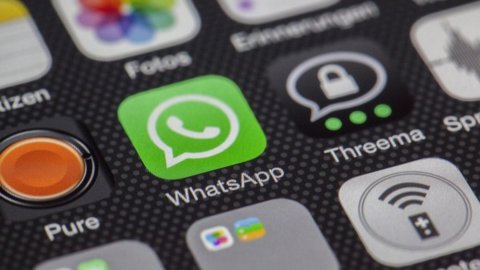Temporarily suspended due to pandemic, the cold war between the United States and China is back on track. The fronts are the known ones: trade tariffs, mutual fake news on the spread of the virus, tensions in Hong Kong. And also a terrain that actually involves the entire western world, especially Europe: 5G. The technological war, which has been talked about less in recent months, has exploded again and is a game of risk in which Washington plays a lot. It is perhaps one of the few terrains where he can still manage to have Europe wholly on his side, thanks to his British friend Boris Johnson. It is precisely the British premier, fresh from the contagion from Covid-19 and from the many controversies on the management of the emergency, who is relaunching the offensive against the Chinese Huawei.
As is known, the US aims to create a European champion of 5G, so that the infrastructure is not entrusted to the Chinese giant, which at that point would use it not only as a trophy but also as a bridgehead to access - according to suspicions Americans – to billions of sensitive data from the Old Continent. The match is therefore not only financial, given that these are gigantic deals, but above all strategic, and for this very reason Johnson has launched the hypothesis of forming an anti-Huawei club, a sort of enlarged G7 to Australia, South Korea and India (which the Times dubs as “D10”), which cuts Asians off 5G. Meanwhile, the first objective is to reduce dependence on the Chinese giant of Great Britain itself, which however has already allowed Huawei to build 35% of its ultra-fast network.
The ban on installing Huawei equipment would take effect from 2023, but the government immediately split over this, with some ministers pointing out to the premier that if ties with Beijing were to break, it would be necessary to redo the entire British Telecom infrastructure, making it difficult if not impossible to maintain the promise to bring broadband across the country by 2025. Johnson is conflicted: he doesn't want to wrong his friend Donald Trump, so much so that at the beginning of the year he had already reduced the share of infrastructure granted to Huawei, reducing it to 35% and above all by excluding it from core assets, such as military ones for example. Now the goal is involve other partners in the anti-China mission, including Italy. Which at the moment is not commenting, but which given the orientation of the first government party, will hardly accept to openly oppose what is increasingly considered an ally.
“We need new competitors in the market,” a British government source told the Times. At the moment, however, there are not many options on the table: the Finnish Nokia and the Swedish Ericsson are the only alternatives currently in Europe for the supply of 5G equipment. Indeed, the United States itself has bet heavily on them for some time now, through funding of several billion dollars. Johnson's pressure to cut ties with Huawei is reinvigorating these days, due to the new security law that Beijing plans to impose on Hong Kong which, it should be remembered, had been a British colony until 1997. London has indeed infuriated Beijing on Thursday saying it would offer 350.000 Hong Kong citizens holding a British national (Oversees) passport the right to relocate to the UK if the new law goes into effect.




